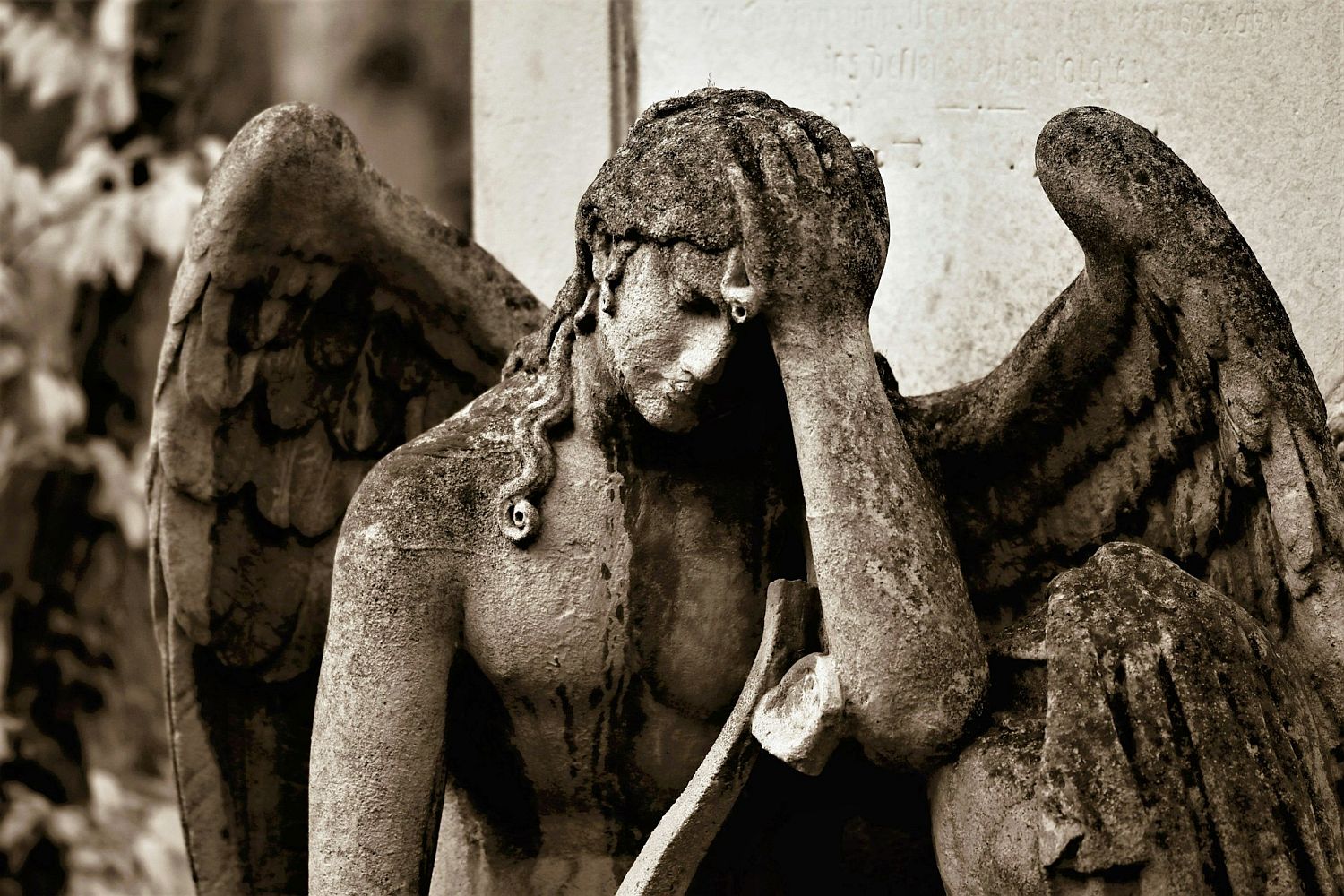A Lapsed Catholic’s Sunday Bible Study
[NB: check the byline, thanks. /~Rayne]
Hello, I’m Rayne, and I’m a lapsed Catholic. I fell away from the Church over a period of time, beginning roughly with the Reagan years and the uptick in Christian fundamentalism’s influence on politics.
It didn’t happen all at once but I finally had enough when the Church became little more than a crypto-fascist mouthpiece for right-wing ideology, focusing almost exclusively on anti-abortion efforts instead of what I was taught were Christ’s teachings.
And yet more than 10 years of Catholic catechism shaped my values and morals, underpinning my Democratic identity. In hindsight I don’t think I left the Church so much as it left me.
Perhaps I should have nailed a thesis to the the Church’s doors in protest but when the entire Church has been subsumed by a political movement, it didn’t occur to me as an effective option.
Now we may need to figuratively nail a thesis on fellow American Christian citizens who’ve lost their way. They have forgotten altogether what Christ taught while forcing on us their corrupt vision of a white Christian nation.
If a nation is truly Christian, it’s not identified as white; the supremacy of whiteness is not what Christ taught. It’s certainly not what I was taught.
From Matthew 22:35-39, the New Testament, King James Version:
35 Then one of them, which was a lawyer, asked him a question, tempting him, and saying,
36 Master, which is the great commandment in the law?
37 Jesus said unto him, Thou shalt love the Lord thy God with all thy heart, and with all thy soul, and with all thy mind.
38 This is the first and great commandment.
39 And the second is like unto it, Thou shalt love thy neighbour as thyself.
During catechism, instructors elaborated on how we must love ourselves as we are the Creator’s handiwork; to love God as commanded means loving His works as well.
And loving His works meant to love our fellow humans because they too, were God’s handiworks.
You can see where I’m going, of course. What the Trump administration does is a rejection of what I’ve understood to be God’s commandments.
Not just the top two commandments, but so many other teachings from both the Old and New Testament representing the core of Christianity:
Old Testament
Exodus 12:49
The same law applies both to the native-born and to the foreigner residing among you.Exodus 22:21
You shall not wrong a stranger or oppress him, for you were strangers in the land of Egypt.Exodus 23:9
Do not oppress a foreigner; you yourselves know how it feels to be foreigners, because you were foreigners in Egypt.Leviticus 23:22
When you reap the harvest of your land, do not reap to the very edges of your field or gather the gleanings of your harvest. Leave them for the poor and for the foreigner residing among you. I am the LORD your God.Leviticus 24:22
You are to have the same law for the foreigner and the native-born. I am the LORD your God.Leviticus 25:35
Now in case a countryman of yours becomes poor and his means with regard to you falter, then you are to sustain him, like a stranger or a sojourner, that he may live with you.Deuteronomy 10:18
He defends the cause of the fatherless and the widow, and loves the foreigner residing among you, giving them food and clothing.Deuteronomy 10:19
And you are to love those who are foreigners, for you yourselves were foreigners in Egypt.Deuteronomy 15:7-11
“If there is a poor man with you, one of your brothers, in any of your towns in your land which the Lord your God is giving you, you shall not harden your heart, nor close your hand from your poor brother;Deuteronomy 24:14
Do not take advantage of a hired worker who is poor and needy, whether that worker is a fellow Israelite or a foreigner residing in one of your towns.Deuteronomy 27:19
Cursed is anyone who withholds justice from the foreigner, the fatherless or the widow. Then all the people shall say, “Amen!”Zechariah 7:10
and do not oppress the widow or the orphan, the stranger or the poor; and do not devise evil in your hearts against one another.New Testament
Matthew 25:35-46
For I was hungry, and you gave Me something to eat; I was thirsty, and you gave Me something to drink; I was a stranger, and you invited Me in; naked, and you clothed Me; I was sick, and you visited Me; I was in prison, and you came to Me.’ Then the righteous will answer Him, ‘Lord, when did we see You hungry, and feed You, or thirsty, and give You something to drink?3 John 1:5
Beloved, you are acting faithfully in whatever you accomplish for the brethren, and especially when they are strangers;James 1:27
Religion that God our Father accepts as pure and faultless is this: to look after orphans and widows in their distress and to keep oneself from being polluted by the world.Galatians 3:28
There is neither Jew nor Gentile, neither slave nor free, nor is there male and female, for you are all one in Christ Jesus.Hebrews 13:2
Do not neglect to show hospitality to strangers, for by this some have entertained angels without knowing it.
I don’t know how any Christian can have learned these tenets and not objected strenuously to Trump’s anti-immigrant policies and the funding of ICE as his personal anti-immigration militia.
Immigrants are strangers, travelers from foreign lands, asylum seekers looking for aid and justice. Christians haven’t been told to segregate the legal from illegal when it comes to treatment of immigrants; they have been told repeatedly to treat immigrants with kindness and generousity because all humans are ultimately the descendents of immigrants.
I thought of that last verse from Hebrews in particular after learning ICE shot a pastor in the face at the ICE detention facility in Broadview, IL.
I thought of Hebrews 13:2 again when ICE turned away interfaith clerics who came to administer communion to the faithful in detention two weeks ago.
And ICE has been harassing Catholic faithful by menacing them outside Chicago-area churches.
It doesn’t matter if Christian clerics representing the faith have appeared to protest ICE’s abuses and Trump’s immigration policies, let alone administer to the faithful. How much closer to an obvious an angel does one have to be for Trump and ICE to halt the perversion of Christ’s teachings these so-called white Christian nationalists are forcing on fellow humans?
It’s obvious Trump would have no compunction about shooting an angel in the face on Fifth Avenue given his administration’s policies and actions.
Even a lapsed Catholic like me finds the Trump adminstration’s behaviors decidedly un-Christian. It makes me think of yet another lesson I learned during catechism:
James 2:14-26
What good is it, my brothers, if someone says he has faith but does not have works? Can that faith save him? If a brother or sister is poorly clothed and lacking in daily food, and one of you says to them, “Go in peace, be warmed and filled,” without giving them the things needed for the body, what good is that? So also faith by itself, if it does not have works, is dead. But someone will say, “You have faith and I have works.” Show me your faith apart from your works, and I will show you my faith by my works. …
Deeds not words. Attacking immigrants is far from demonstrating Christian faith.


